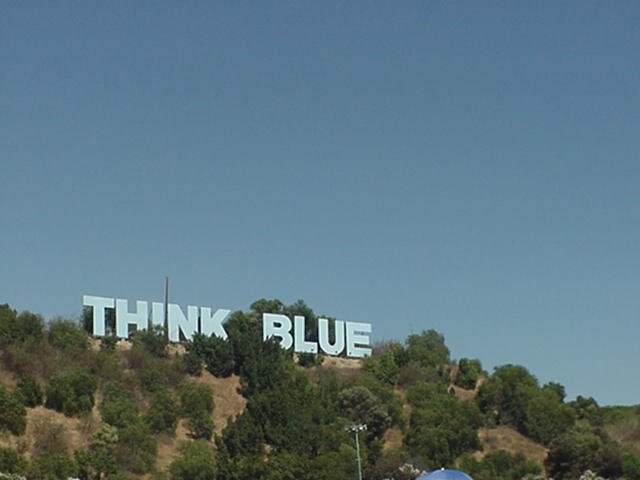Afghanistan: Still not "Mission Accomplished"
Everyday I receive free email reports from an organization called Stratfor (short for Strategic Forecasting). They are a risk assessment firm focused on assisting corporations and investors in assessing foreign policy risk in their business. Go ahead and sign up for their free email alerts. They give background about some very important news not usually covered in the mainstream media. For instance, this early morning intelligence briefing was about Afghanistan.
PS. If someone at Stratfor would prefer that I not post this information please let me know. I will immediately pull it.
Geopolitical Diary: The Other Theater of OperationsI Don't have link since it came via email, and I can't find this information on their website. Nevertheless, we can't allow the Decider-in Chief to lose sight of the ball. Afghanistan has the potential of being a major problem, and we need some real leadership to address the current situation.
While the Iraq war drags on, there is precious little discussion of the other active theater of operations: Afghanistan. Afghanistan is frequently touted as the "un-Iraq," in the sense that the U.S. invasion of the country clearly was linked to fighting al Qaeda, and the United States has fought as part of a coalition. To drive that point home on Thursday, Canada voted (albeit by a margin of only four votes) to extend its mission in Afghanistan. Others have been indicating willingness to go on with their commitments there also.
At the same time, a major Taliban offensive is under way in Afghanistan. There was heavy fighting on Thursday when Taliban forces attacked the town of Mosa Qala, 300 miles southwest of Kabul. A suicide bomber attacked a convoy outside the city of Herat. Another suicide bomber struck near the town of Ghazni. All told, Afghan government reports set the death toll for the day at about 100. This does not count action elsewhere that was not widely reported.
It is essential to understand that the Taliban were not destroyed in the 2001 invasion. Under pressure from the Northern Alliance forces recruited by the United States, and by U.S. air power, Taliban forces declined combat in the cities, where they would have been decimated. They withdrew and dispersed, regrouping in isolated villages and across the Pakistani border. Then they systematically returned -- each year, increasing their tempo of operations and, each year, extending their reach. As the combat season begins every spring, Taliban activities increase. So it follows that, in the fifth spring since Kabul's fall, the intensity of fighting should be the greatest yet.
The United States has a fraction of the troops in Afghanistan that it has in Iraq. Its coalition partners, although they are taking casualties, are not engaged in offensive operations, as the Americans are reducing operational capabilities. Afghanistan is larger than Iraq and far more rugged. It is an inhospitable area for combat operations by conventional, mechanized forces. The Soviets, with hundreds of thousands of troops, were unable to subdue insurgents in Afghanistan; the United States -- with perhaps a tenth of the number of forces that the Soviets had there -- doesn't have a chance.
The only advantage the United States has in this environment is the political fragmentation of the countryside. The government does not control Afghanistan; in fact, it really is another faction within the country. That means there are forces in Afghanistan whose interests are not the same as the Taliban's, or who can be induced to fight the Taliban. It is not U.S. military force that blocks Taliban power, but the American ability to manipulate the constellation of forces in the country. Military force can preserve the government in Kabul; it cannot pacify the countryside.
The issue is that as Taliban power increases, the willingness of regional warlords to collaborate with the government and the United States decreases. No one wants to be caught on the wrong side of a war in that country. If the United States is perceived to have been defeated in Iraq, and if it appears the United States is losing its will to fight in Afghanistan -- which will be measured by its willingness to increase forces to match the Taliban's operational tempo -- then the strategy of coalition-building collapses.
While everyone is focused on Iraq, a crisis is slowly emerging in Afghanistan. It will play itself out politically, as warlords shift their alliances. It will then emerge militarily, with increasing pressure on forces in Afghanistan. In fact, that is what is happening now, except for the fact that most of the world has not yet noticed it. If Afghanistan has been the Bush administration's "good war" (as opposed to the war in Iraq), some of the shine is going to come off that image as the summer wears on, and certainly in 2007. The Taliban are back in Afghanistan, and they are not a marginal force. More important, they are not going anywhere, and they believe that the Americans -- like the British and Soviets -- will not be staying long. They can afford to be patient.
PS. If someone at Stratfor would prefer that I not post this information please let me know. I will immediately pull it.



0 Comments:
Post a Comment
<< Home